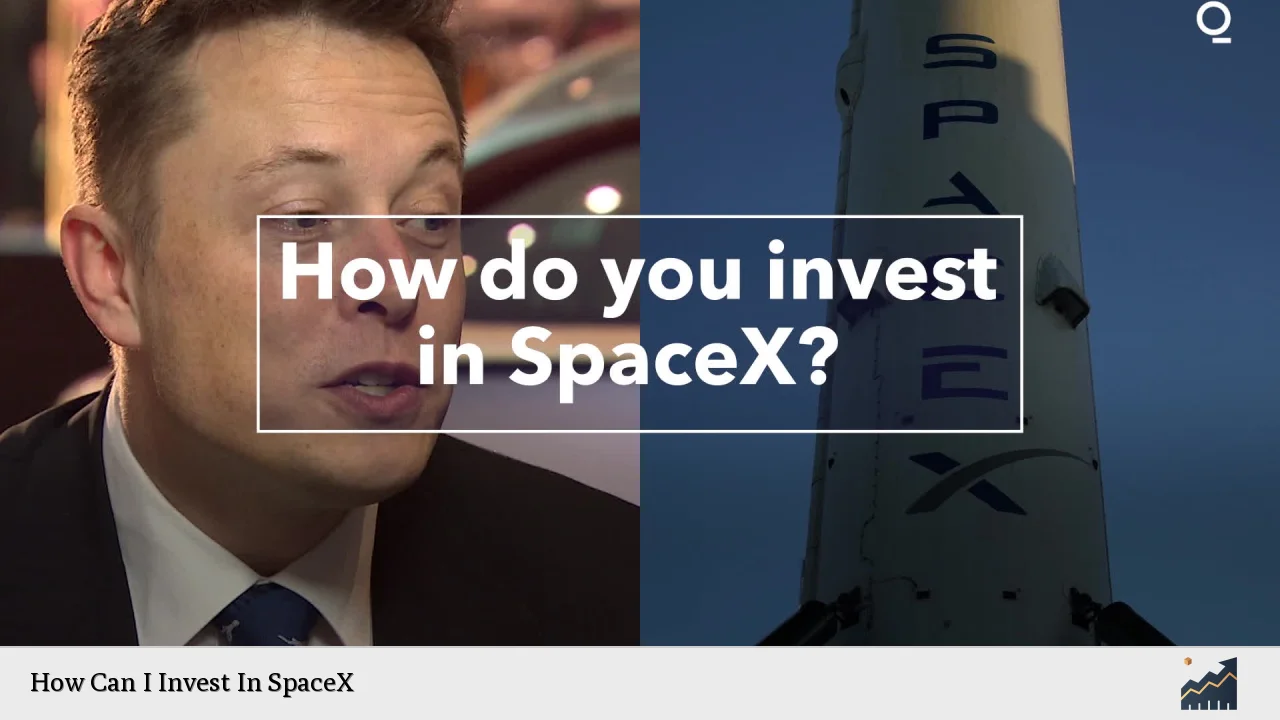Investing in SpaceX, the aerospace company founded by Elon Musk, presents unique challenges due to its status as a privately held entity. Unlike publicly traded companies, SpaceX shares are not available on stock exchanges, making direct investment difficult for retail investors. However, there are several avenues for those interested in gaining exposure to SpaceX’s growth and innovations. This article will explore these options, detailing how you can invest in SpaceX either directly or indirectly.
| Investment Method | Description |
|---|---|
| Direct Investment | Buying shares from existing shareholders on private marketplaces. |
| Indirect Investment | Investing in companies or funds that have stakes in SpaceX. |
Understanding SpaceX’s Investment Landscape
SpaceX is renowned for its ambitious goals, including reducing space transportation costs and enabling the colonization of Mars. As a private company, it has successfully raised billions in funding without going public. This means that only accredited investors—those meeting specific income and net worth criteria—can directly purchase shares of SpaceX. For most individual investors, this creates a barrier to entry.
Accredited investors typically need to meet one of the following criteria:
- An annual income exceeding $200,000 for the past two years.
- A net worth of $1 million or more, excluding primary residence.
- Certain professional certifications or credentials.
If you do not qualify as an accredited investor, your options for investing in SpaceX will be limited to indirect methods.
Direct Investment Options
Pre-IPO Marketplaces
One way to invest directly in SpaceX is through pre-IPO marketplaces such as Hiive or Linqto, where accredited investors can buy shares from current shareholders. These platforms allow you to negotiate prices and purchase shares directly from individuals or funds looking to sell their stakes.
- Hiive offers numerous listings for SpaceX shares, allowing buyers to interact with sellers directly.
- Linqto may have higher costs per share but facilitates quicker transactions with lower minimum investments.
Secondary Transactions
If you are an accredited investor, you might also consider participating in secondary transactions, where existing shareholders sell their shares. This process can be complex due to regulations and the need for approval from SpaceX itself regarding share transfers.
Indirect Investment Options
For most retail investors, indirect investment methods are more accessible and practical. Here are some effective strategies:
Investing in Public Companies with Stakes in SpaceX
A couple of public companies have invested significantly in SpaceX:
- Alphabet (GOOGL): The parent company of Google invested approximately $900 million in 2015 and has continued to support SpaceX through additional funding rounds.
- Bank of America (BAC): This financial institution invested around $250 million in 2018.
By purchasing shares of these companies, you gain indirect exposure to SpaceX’s success. However, it’s important to note that these investments represent only a small fraction of each company’s overall business.
Exchange-Traded Funds (ETFs) and Mutual Funds
Investing in ETFs and mutual funds that include holdings related to space exploration can provide another layer of indirect exposure to SpaceX. Some notable funds include:
- ARK Space Exploration & Innovation ETF (ARKX): Focuses on companies involved in space exploration and innovation.
- Direxion Daily Aerospace & Defense Bull 3X Shares (DFEN): Targets aerospace and defense companies, potentially benefiting from advancements made by SpaceX.
These funds allow investors to diversify their portfolios while still being linked to the aerospace sector’s growth.
Investing in Competitors and Partners
Another strategy is investing in companies that either compete with or partner with SpaceX. For instance:
- Virgin Galactic (SPCE): A direct competitor focusing on commercial space travel.
- Boeing (BA): While Boeing is a competitor, it also collaborates with NASA and other entities on various aerospace projects.
These companies may benefit from advancements made by SpaceX or could be affected by its market performance.
Risks and Considerations
Investing in private companies like SpaceX involves certain risks. These include:
- Illiquidity: Shares of private companies are not easily tradable, making it challenging to sell your investment quickly.
- Market Volatility: The aerospace sector can be volatile; changes in government policy or technological advancements can significantly impact stock performance.
- Limited Information: Unlike public companies, private firms are not required to disclose financial information regularly, which can make it difficult to assess their financial health accurately.
Before investing, ensure you conduct thorough research or consult with a financial advisor who understands the complexities of investing in private equity and venture capital.
Future Outlook for SpaceX Investments
While there is no confirmed timeline for a potential IPO for SpaceX, speculation continues regarding its future public offering. Elon Musk has hinted at the possibility but has emphasized the company’s ability to raise capital privately as a reason for delaying going public. If an IPO occurs, it could open up investment opportunities for a broader range of investors.
In the meantime, focusing on indirect investment strategies allows individuals to participate in the growth potential associated with SpaceX without needing direct access to its shares.
FAQs About Investing In SpaceX
- Can I buy shares of SpaceX directly?
No, only accredited investors can purchase shares directly through private transactions. - What are pre-IPO marketplaces?
Platforms where accredited investors can buy shares from existing shareholders before a company goes public. - How can I invest indirectly in SpaceX?
You can invest in public companies that have stakes in SpaceX or buy ETFs focused on the aerospace sector. - What is the risk of investing in private companies?
Private investments are illiquid and carry higher risks due to limited information availability. - Is there an expected IPO date for SpaceX?
No official date has been announced; speculation exists but remains uncertain.
Investing in SpaceX requires navigating complex avenues due to its private status. By understanding both direct and indirect investment options, you can position yourself within this innovative sector while managing associated risks effectively.

